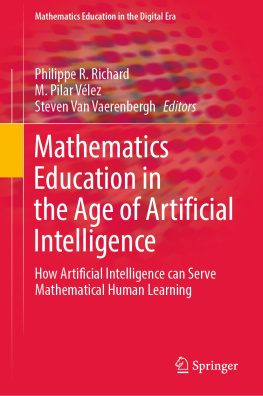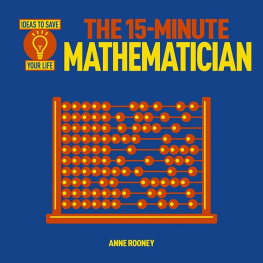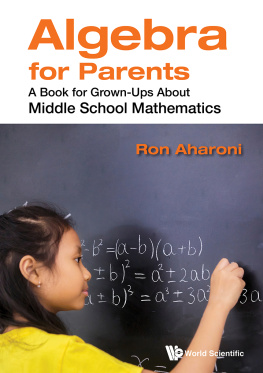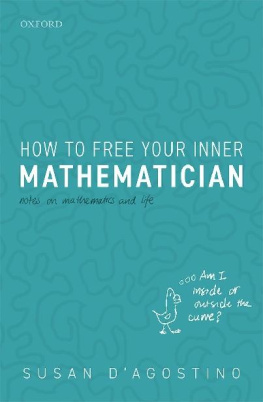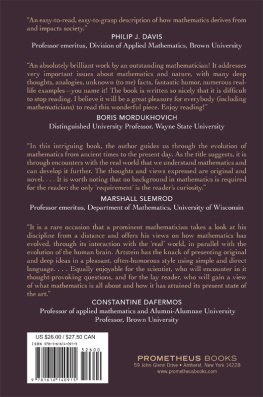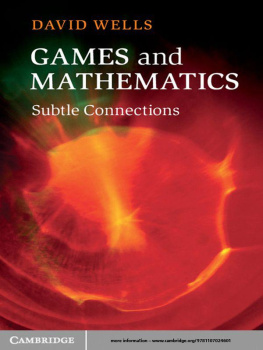mathematics for human
flourishing
mathematics
FOR human
flourishing
Francis Su
WITH REFLECTIONS BY
Christopher Jackson

Copyright 2020 by Francis Edward Su. All rights reserved. This book may not be reproduced, in whole or in part, including illustrations, in any form (beyond that copying permitted by Sections 107 and 108 of the U.S. Copyright Law and except by reviewers for the public press), without written permission from the publishers.
Yale University Press books may be purchased in quantity for educational, business, or promotional use. For information, please e-mail sales.press@yale.edu (U.S. office) or sales@yaleup.co.uk (U.K. office).
Designed by Nancy Ovedovitz and set in Minion and Scala Sans types by Tseng Information Systems, Inc. Chapter-opening art by Carl Olsen (carlolsen.net). Selected illustrations courtesy Barbara Schoeberl, Animated Earth LLC. Printed in the United States of America.
Library of Congress Control Number: 2019943551
ISBN 978-0-300-23713-9 (hardcover : alk. paper)
A catalogue record for this book is available from the British Library.
This paper meets the requirements of ANSI / NISO Z 39.48-1992
(Permanence of Paper).
10 9 8 7 6 5 4 3 2 1
For the Christophers and Simones of the world
contents
preface
This book is not about how great mathematics is, though it is, indeed, a glorious endeavor. Nor does it focus on what math can do, though it undeniably can do many things. Rather, this is a book that grounds mathematics in what it means to be a human being and to live a more fully human life.
This book grew out of a speech I gave in January 2017 at the end of my term as the president of the Mathematical Association of America. Although I was addressing a conference of mathematicians, the underlying themes were universal and the message resonated in ways I could not have anticipated. The tearful response of the audience showed me that there truly is a need, even among those who do math for a living, to talk about our longings for the common good, and the need for us to be better human beings to one another. After the speech was reported in Quanta Magazine and Wired, I received numerous letters from people whose experiences of math matched my own: hurtful ones when it is not practiced well, and joyful ones when we see how different it can be.
To welcome everyone to this conversation, Ive aimed this book at a wide audienceespecially those of you who dont see yourselves as math people. Maybe the way for you to see yourself in mathematics is not for me to convince you that math is great or that math does lots of wonderful things, but for me to show you that math is intimately tied to being human. For then your deepest human desires reveal your mathematical natureand you need only to awaken it.
I wont assume much background; I know weve all had different experiences in math, and its totally fine to come to this book as you are. Ill refer to some mathematical ideas here and there and try to connect them to things you may know, in much the same way that you might have casual conversations about philosophy or music or sports. You may be reading this book on behalf of someone you know who is learning mathematics, and for that reason I will sometimes give advice to those who teach. No matter who you are, I hope youll read this book as an invitation and think of the ideas as conversation startersin the home, in the classroom, or among friendsfor how to imagine mathematics in a new way.
mathematics for human
flourishing
1
flourishing
Every being cries out silently to be read differently.
Simone Weil
Christopher Jackson is an inmate in a high-security federal prison. Hes been in trouble with the law since he was fourteen. He didnt finish high school, he had an addiction to hard drugs, and at age nineteen he was involved in a string of armed robberies that landed him in prison with a thirty-two-year sentence.
By now, youve probably formed a mental image of who Christopher is, and you might be wondering why Im opening with his story. When you think about who does mathematics, would you think of Christopher?
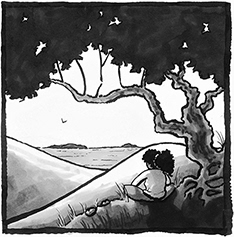
Yet he wrote me a letter after seven years in prison. He said:
Ive always had a proclivity for mathematics, but being in a very early stage of youth and also living in some adverse circumstances, I never came to understand the true meaning and benefit of pursuing an education....
Over the last 3 years I have purchased and studied a multitude of books to give me a profound and concrete understanding of Algebra I, Algebra II, College Algebra, Geometry, Trigonometry, Calculus I and Calculus II.
When you think about who does mathematics, would you think of Christopher?
Every being cries out silently to be read differently.
Simone Weil (19091943) was a well-known French religious mystic and a widely revered philosopher. She is probably less well known as the younger sister of Andr Weil, one of historys most famous number theorists.
For Simone, to read someone means to interpret or make a judgment about them. Shes saying, Every being cries out silently to be judged differently. I wonder if Simone was crying out about herself. For she, too, loved and participated in mathematics, but she often compared herself unfavorably to her brother. In a letter to a mentor, she wrote:
At fourteen I fell into one of those fits of bottomless despair that come with adolescence, and I seriously thought of dying because of the mediocrity of my natural faculties. The exceptional gifts of my brother, who had a childhood
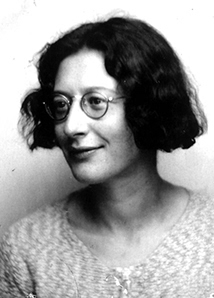
Simone Weil, around 1937.
Photo courtesy of Sylvie Weil.
We know Simone loved mathematics because she used mathematical examples throughout her philosophical writing.
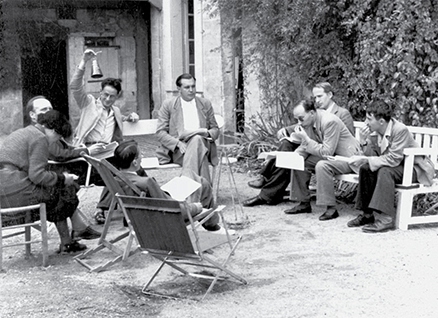
A meeting of Bourbaki, around 1938. Simone Weil is seen at left, leaning over her notes. Andr Weil is waving the bell.
Photo courtesy of Sylvie Weil.
Every being cries out silently to be read differently.
I am a joyful enthusiast of mathematics, a teacher of mathematics, a researcher in mathematics, and former president of the Mathematical Association of America. So you might think that my relationship to mathematics has always been solid. I dont like the word success, but people think of me as successful, as if the true measure of my mathematical achievement were the awards Ive received or the papers Ive published. Even though Ive had advantages, including a middle-class background and parents who pushed me to excel, my pursuit of math, even for nobler reasons than achievement, has had its obstacles.
As a child I was attracted to the beautiful ideas of mathematics, and I longed to learn more. But I grew up in a small rural town in south Texas, with limited opportunities. There were few advanced math or science courses available in my high school, since college wasnt a standard option for its students. I didnt have a large network of friends excited about math. My parents, as motivated as they were to help me learn, didnt know where to look to nourish my interest in mathematics; finding such resources was even harder in the era before the internet existed. I mainly relied on older books from the public library. My love for math deepened when I was an undergraduate at the University of Texas, and I was admitted to Harvard for my PhD. But I felt out of place there, since my college degree was not from an Ivy League school and, unlike many of my peers, I did not have a full slate of graduate courses when I entered. I felt like Simone Weil, standing next to future Andr Weils, thinking I would never be able to flourish in mathematics if I was not like them.
Next page

